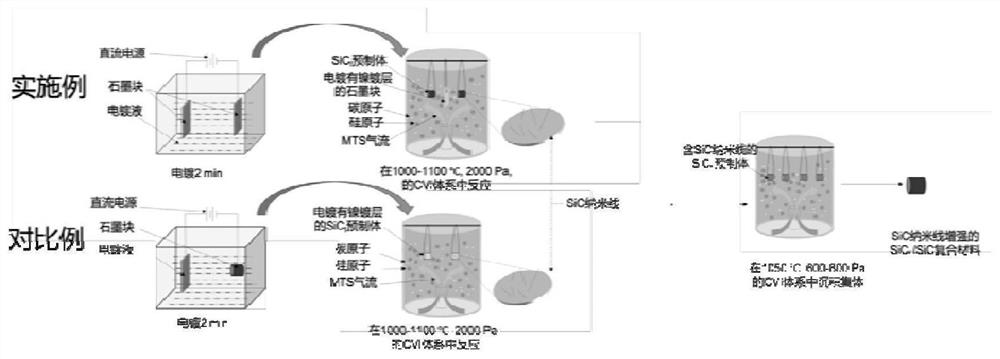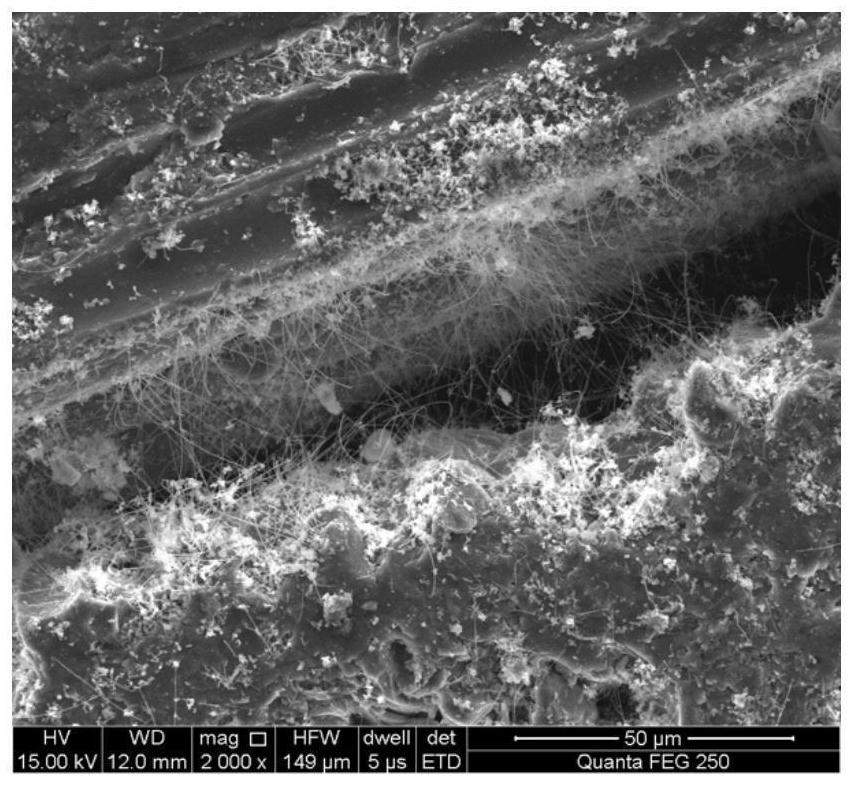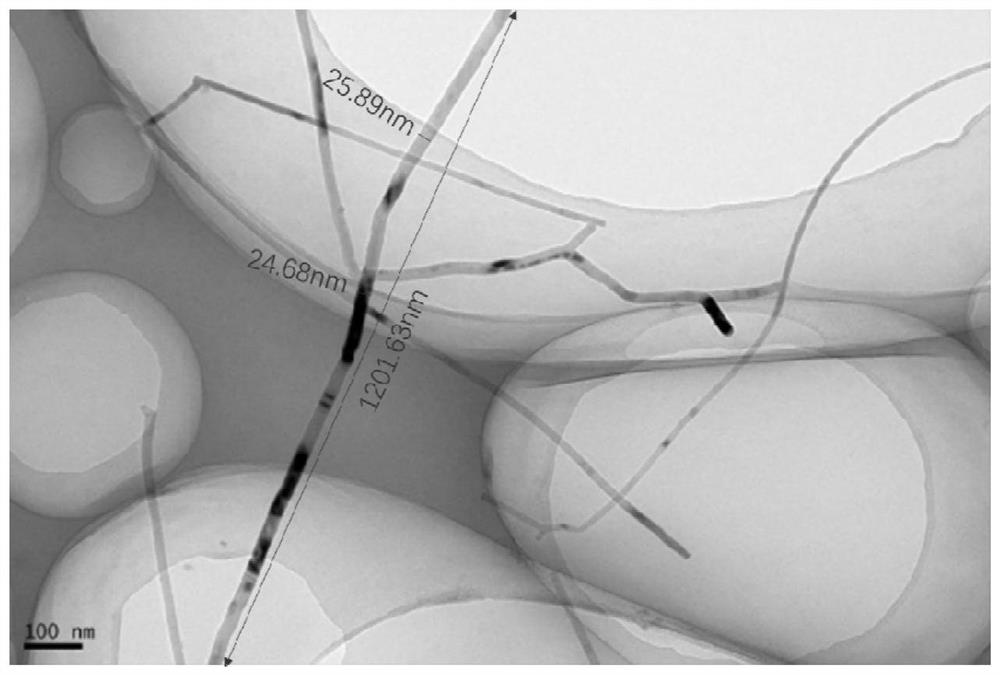Preparation method and application of modified SiCf/SiC ceramic-based composite material with SiC nanowires grown in situ
An in-situ growth and composite material technology, applied in the field of ceramic matrix composite material preparation, can solve the problems of reducing material properties, low preparation efficiency, affecting the densification of composite materials, etc., to achieve the effect of improving crushing performance and uniform distribution
- Summary
- Abstract
- Description
- Claims
- Application Information
AI Technical Summary
Problems solved by technology
Method used
Image
Examples
Embodiment 1
[0039] step 1:
[0040] 1 Polish the graphite sheet with sandpaper, ultrasonically clean it for 10 minutes and then dry it. Use wires to connect the graphite electrodes to both ends of the 32V DC power supply, respectively as the cathode and anode of the electrolytic cell, soaked in NiSO 4 (16.25g / L)+NiCl 2 (2.5g / L) + boric acid (2.5g / L) + sodium lauryl sulfate (0.0125g / L)) electroplating solution, turn on the power, set the current intensity of 1A, and the electroplating time is 2min.
[0041] 2 Place the electroplated graphite sheet and the SiC fiber prefabricated cladding tube together in a chemical vapor deposition furnace (see attached figure 1 ), turn on the vacuum pump to evacuate to below 2000Pa, raise the temperature to 300°C at a rate of 5°C / min and keep it warm for 1h, while feeding 400ml / min of H 2 Discharge impurities and clean the furnace. After the furnace cleaning is completed, heat the trichloromethylsilane water bath to 36°C, and at the same time continue ...
Embodiment 2
[0050] step 1:
[0051] 1 Polish the graphite sheet with sandpaper, ultrasonically clean it for 10 minutes and then dry it. Use wires to connect the graphite electrodes to both ends of the 32V DC power supply, respectively as the cathode and anode of the electrolytic cell, soaked in NiSO 4 (16.25g / L)+NiCl 2 (2.5g / L) + boric acid (2.5g / L) + sodium lauryl sulfate (0.0125g / L)) electroplating solution, turn on the power, set the current intensity of 1A, and the electroplating time is 2min.
[0052] 2 Place the electroplated graphite sheet and the SiC fiber prefabricated cladding tube together in a chemical vapor deposition furnace, turn on the vacuum pump to evacuate to below 2000Pa, raise the temperature to 300°C at a rate of 5°C / min and keep it warm for 1h, and at the same time inject 400ml / min H 2 , discharge impurities and clean the furnace. After the furnace cleaning is completed, heat the trichloromethylsilane water bath to 36°C, and continue to raise the temperature to 1...
PUM
| Property | Measurement | Unit |
|---|---|---|
| thickness | aaaaa | aaaaa |
| diameter | aaaaa | aaaaa |
| density | aaaaa | aaaaa |
Abstract
Description
Claims
Application Information
 Login to View More
Login to View More - R&D
- Intellectual Property
- Life Sciences
- Materials
- Tech Scout
- Unparalleled Data Quality
- Higher Quality Content
- 60% Fewer Hallucinations
Browse by: Latest US Patents, China's latest patents, Technical Efficacy Thesaurus, Application Domain, Technology Topic, Popular Technical Reports.
© 2025 PatSnap. All rights reserved.Legal|Privacy policy|Modern Slavery Act Transparency Statement|Sitemap|About US| Contact US: help@patsnap.com



